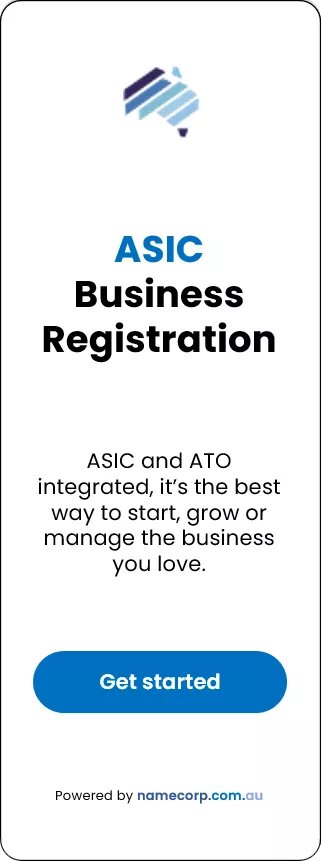Understand work health and safety requirements that apply to your business.
What is work health and safety (WHS)?
Work health and safety (WHS) involves taking care of risks to the health and safety of people in your workplace, including:
- workers
- customers
- visitors
- suppliers.
This is also known as occupational health and safety (OH&S).
Implementing WHS safe practices and installing safety equipment may initially cost money and time. Businesses must take action. Otherwise, they may face prosecution, fines, and loss of skilled staff.
Workers' compensation laws require you to provide employees with a workers' compensation insurance policy.
Benefits of WHS in your business
A legal requirement for businesses is creating a safe work environment. This is essential for the long-term success of your business. It can:
- help you retain staff
- improve productivity
- reduce workplace injury and illness
- reduce the costs of injury and workers' compensation.
Your WHS obligations
You must implement health and safety practices as soon as you start your business. Under Australian WHS laws, your business must:
- ensure your workers' health and safety
- not put other people's health and safety at risk
To do this, you must provide the following:
- a safe work environment
- consistently handled, maintained, and stored safe machinery, structures, and substances
- safe ways of working
- maintained adequate facilities
- any information, training, instruction, or supervision needed for safety
- monitoring of the health and workplace conditions of your workers
Your workers' WHS obligations
WHS obligations are also given to people working in your business. They must:
- take care of their health and safety
- take care of not doing any action that will hurt others
- consistently obey WHS instructions
- follow the WHS policies and procedures.
WHS requirements in your state or territory
Each state has its variation of WHS laws and a regulator that enforces them. The WHS framework includes the following:
- Act – outlines your broad responsibilities.
- Regulations – set out specific requirements for hazards and risks, which can include noise, machinery, and manual handling.
- Codes of practice – provide practical information on meeting the Act and Regulations requirements.
- Regulating agency (regulator) – administers WHS laws. They also inspect workplaces, provide advice, and enforce the laws. For more information on WHS and resources, check out their website.
There might be different regulators for workers' compensation in other states.
WHS requirements for your industry
Your business's WHS requirements depend on the potential risks in your workplace. To find the requirements for your industry, check our industry information pages.
Getting independent advice on the WHS requirements may be worth getting for your business.
Emergency plans and first aid
Being prepared to respond if an accident or emergency happens is part of WHS. To minimise workplace risks and be better prepared for emergencies, check the following:
- Do you have an emergency plan?
- Have you done a first-aid assessment of your business?
- Do you have sufficient trained first-aiders to cover unplanned absences?
- Is first aid equipment in your workplace easy to locate and access?
- Do you run emergency drills in your workplace?
- Have you identified areas of increased risk in your business activities?
Work in extreme weather
Extreme weather, including heat, cold, hail, or strong winds, may affect your business. When these happen, understand your obligations to your workers.
According to WHS laws, you should have a safe working environment and protect your workersin extreme weather. You should also know the signs of heat-related illness to manage the risks.
Even if some employees can, because of extreme weather, not all employers have to provide leave if their employees can't work. Check your award or agreement to whether your employees have entitlements to take leave. If you're unclear on employer rights and responsibilities:
- visit the Fair Work Ombudsman website
- contact the Fair Work Infoline on 13 13 94.
Work functions and WHS
Work functions can be an excellent way to thank your staff and celebrate their hard work. You do have to remember that you're still responsible for their health and safety even when your workers are 'off the clock' at the event.
Here are some suggestions to celebrate safely.
Before the event, ensure your internal policies and procedures are current. These include workplace policies for acceptable behaviour and bullying and harassment.
You can send a friendly email reminder that:
- it's still a work function, even if they are encouraged to relax while at the party
- the usual rules still apply, even around sexual harassment
- they should be careful when consuming alcohol.
At the event:
- make sure to serve alcohol legally and responsibly
- food and non-alcoholic drinks available should be enough
- make arrangements to get staff home safely afterward. For example, they can organise a bus, pre-order taxis, or arrange designated drivers.
Working with remote team members
Your WHS obligations as an employer still apply when your staff is working remotely or from home.
If you have staff working remotely, ensure your policies and procedures accommodate them.
For example, you must update them based on their remote work environments.
Think about the following when considering WHS implications for remote working:
- reporting incidents or injuries while working at home
- explaining what a safe home office environment is
- allowing workers to borrow equipment from the office when available
- providing information supporting mental health and well-being.



